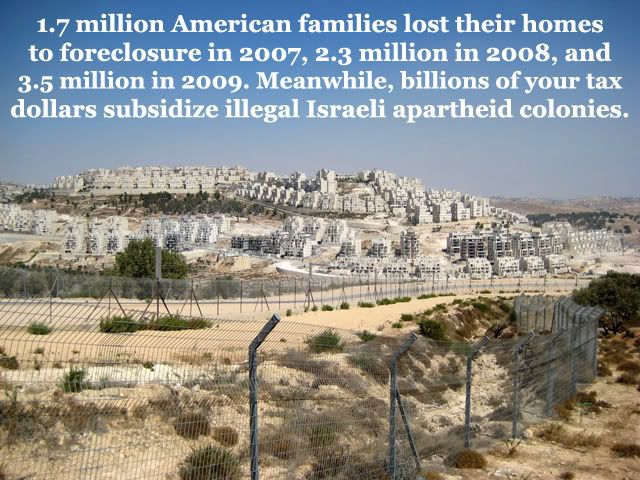Palestinians organize for the Gaza Freedom March
Rami Almeghari, The Electronic Intifada, 30 November 2009
 |
| Mustafa al-Kayali |
The march is scheduled to depart by 31 December from Izbet Abed Rabbo, an area devastated during last winter's Israeli assault, and head towards Erez, the crossing point to Israel at the northern end of the Gaza Strip.
"For the past several months, since the 22-day long Israeli war on Gaza came to an end on 18 January 2009, we in the steering committee that represents civil society organizations here in Gaza, have been planning to organize such a march in an attempt to end the crippling three-year-long Israeli blockade on the coastal enclave," al-Kayali explained.
What makes this planned demonstration different is the fact it will include about a thousand participants from all over the world including about 800 people from the United States itself. Many of the American participants include members of the American pro-peace group, Code Pink.
The march is timed to coincide with the first anniversary of the devastating Israeli attack that killed more than 1,400 Palestinians in Gaza, the vast majority civilians. By heading towards Erez, organizers wish to highlight Israel's responsibility for the siege, a point emphasized in the UN-commissioned Goldstone report that found Israel responsible for war crimes and crimes against humanity. "Erez is the main gate from Gaza to the Israeli apartheid state," al-Kayali said, "so marching there is also a signal of rejection by internationals of the actions of the Israeli apartheid regime."
Several civil society organizations are supporting the Gaza Freedom March, including the Palestinian Campaign for the Academic and Cultural Boycott of Israel (PACBI), the International Campaign for Breaking the Israeli Siege, the Palestinian Workers Syndicate, the Sharek Youth Forum and the Palestinian Network of Nongovernmental Organizations (PNGO).
 |
| Dima al-Meshal |
A student of medicine, al-Meshal said that the march is a reflection of the Palestinian people's determination to get rid of the Israeli repression through peaceful means.
"We will highlight Gaza's condition as a whole," al-Meshal said. "We have a message that we are a people who are in need to live in dignity. This is the first time ever that the Palestinians come together in [such] large numbers along with internationals to say no to repression."
Young people in Gaza are first and foremost motivated for "better lives and better futures. We don't care about food or anything else. I want to live normally, as many others around the world."
In recent months, people in Gaza believe the international community began to direct its attention elsewhere, neglecting the siege of Gaza. Few international media outlets pay attention to the situation here.
Al-Kayali hopes the march will begin to change that: "We call on the internationals who come here not to consider their visits as tourism. Rather, they should convey a real message from the ground to their peoples, organizations or governments."
Since January 2009, several international campaigns have attempted to come to Gaza in solidarity. About four boats, sailed by the Free Gaza Movement, managed to sail to Gaza, yet last summer the Israeli occupation authorities intercepted a further attempt, blocking the boat's arrival into the besieged coastal enclave.
According to organizers of the Gaza Freedom March, international participants will enter through the Rafah crossing terminal on the Gaza-Egypt border line in the southern Gaza Strip.
"Most of local youth with whom I talked over the Gaza Freedom March expressed excitement and enthusiasm for participation," al-Kayali said. "They are keen to send a message to the outside world that the Palestinian people are there and that humans should be united for the sake of freedom."
All images by Rami Almeghari.
Rami Almeghari is a journalist and university lecturer based in the Gaza Strip.
GazaFreedomMarch.org

















